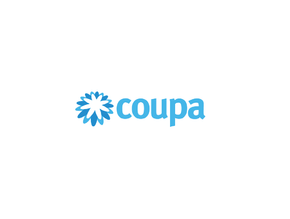Talent in procurement needs to be retained, not acquired

In a recent Future of Sourcing (SIG) publication, Jessica Day, Senior Director for Marketing Strategy at Dialpad offered her thoughts on Recruitment (or talent acquisition).
Day commented that it's "one of those aspects of your company's growth that seems straightforward but really isn’t."
She defines high-volume recruitment (HVR) as "any activity that involves hiring a large number of people at a time".
In terms of the challenges of HVR, day delicates time restrictions, budgeting cost per hire, keeping the recruitment team up to speed and strategies for the Process.
As solutions, she offers: selecting the right recruitment platform that works for you, setting up a solid front for candidate engagement, the use of external recruiters & recruitment agencies, and eliminating hiring bias.
Booming or Busting?
There are two sets of circumstances where HVR comes to mind. One of them involves an expansion of the organisation, indicating healthy growth, and the other, its polar opposite.
Considering procurement's straining under the weight of recent global events, it may just be the latter.
A recent Procurement Magazine article reported that staff burnout continues to rock procurement and supply chains.
The article states: "The relationship between wider geopolitical occurrences such as the pandemic, war, inflation and the energy crisis, and procurement, is reflexive and circuitous.
Global events influence procurement (and importantly procurement teams - and people), and procurement influences global events."
On the issue, a CIPS/Supply Management article pointed to two surveys, which “have painted a picture of buyers facing burnout as they struggle to keep operations running, while stressed teams are finding retention more difficult, with roughly a fifth of buyers planning to leave their roles.”
If these projected resignations do in fact occur, it will mean an almost 20% loss of procurement staff, which will continue to intensify the already-mounting stresses on economies and people around the world.
But they are already occurring, just at lesser rates, but even a 5% loss is liable to put procurement teams under strains that'll have knock-on effects for procurement teams and beyond.
To curb the losses, the CIPS, Supply Management article provided recommendations on how procurement professionals can ensure that their teams don’t burn out:
1. Encourage mental and physical well-being
2. Tailor approaches to individual needs
3. Training to ensure employees are equipped to deal with challenges
4. Collaborative working to ease the burden
5. Assessments of mental health and stress
6. Tackle inefficiencies though AI and Tech
- Gartner: Lack of procurement talent to meet future needsOperations
- What is a Fractional Chief Procurement Officer?Procurement Strategy
- Using SaaS Solutions to Enable Staff Augmentation on BudgetProcurement Strategy
- Procure MedTech to secure quality of life and retain staffProcurement Strategy





